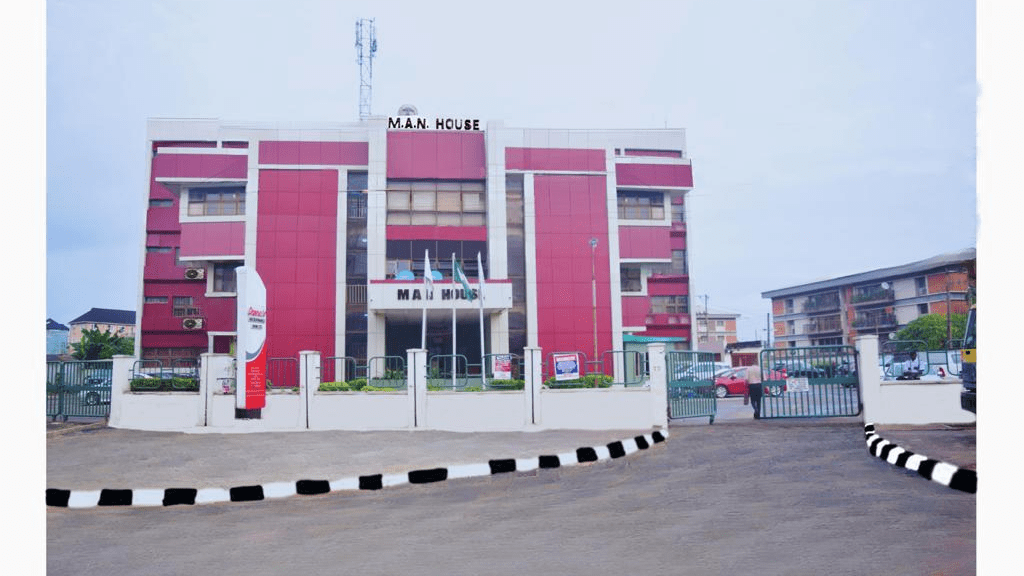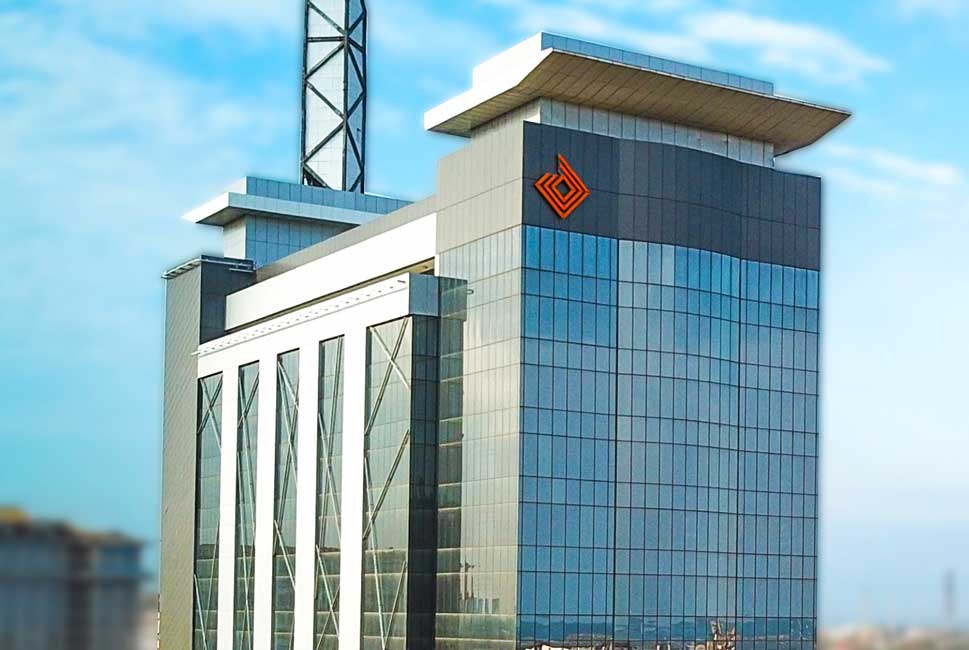MAN Declares Support for 15% Import Tariff on Petrol, Diesel
MAN Declares Support for 15% Import Tariff on Petrol, Diesel
•Says it’s a step towards strengthening local content, patronage of made-in-Nigeria
•In meeting with German manufacturers, Bagudu courts support towards $1tn economy, harps on role of private sector
James Emejo in Abuja and Dike Onwuamaeze in Lagos
Manufacturers Association of Nigeria (MAN) yesterday declared its support for the federal government’s recent approval of a 15 per cent import tariff on petrol and diesel.
MAN said it viewed the tariff as a strategic step and patriotic policy that aligned with the Nigeria First agenda and its long-standing advocacy for local content development and patronage of Made-in-Nigeria.
Director General of MAN, Mr. Segun Ajayi-Kadir, expressed those views in a press statement.
Ajayi-Kadir said MAN acknowledged the major step in the implementation of Nigeria First policy of government.
That came as Minister of Budget and Economic Planning, Senator Abubakar Bagudu, yesterday urged German companies to support the federal government’s ambitious drive towards achieving a $1 trillion economy by 2030.
Speaking in Abuja, while hosting a delegation from the Giessen-Friedberg Chambers of Commerce from Germany, Bagudu stated that President Bola Tinubu had outlined a bold plan to accelerate the country’s economic growth to realise the target.
He said, “Our president has challenged all of us in his team that he wants us to generate a $1 trillion economy by the year 2030. It’s a very big ambition and most of the growth is to come from the private sector.
“Nigeria has a huge absorptive capacity, especially in technologies that Germany and German companies and skilled German workers have in abundance, which we believe can help in generating this growth in a mutually beneficial manner.
“We want German companies – small, medium and big – to play a bigger role in Nigeria. We want our entrepreneurs to link up with the German ecosystem, technology, skilled manpower and know-how, so that we can generate more trade growth, we can generate more value from our relationship, which can even absorb some of the skilled manpower we are targeting.”
The MAN president said the petrol-diesel tariff would accelerate the country’s journey toward energy sovereignty, industrial competitiveness, and sustainable economic growth – all anchored on the strength of Made-in-Nigeria.
He said, “This strategic policy has reassured domestic manufacturers that government is attentive to the imperatives of growing indigenous manufacturing.
“It exemplifies governments commitment to halting the perennial bleeding of our patrimony; asserting the sovereignty of the great country; guaranteeing energy sufficiency and security, and improving the overall wellbeing of Nigerians in these regards.
“This is a sure step in the promotion of local value addition, strengthening domestic refining capacity, conserving foreign exchange, and advancing Nigeria’s long-term industrialisation objectives.”
Ajayi-Kadir also highlighted the need for unfettered implementation of the Naira for crude arrangement that would ensure effective and reliable supply of crude to the local refineries and reduce the pressure on our scarce foreign exchange.
He said the new tariff would attract more investors, including the holders of the 30 refinery licenses, to commit resources in the sector.
He stated, “There is no better path to fixing Nigeria’s economy than protecting local industries, encouraging local patronage, fostering value addition, and promoting industrial development anchored on local content.
“MAN recognises the importance, significance, and necessity of the approval of the 15 per cent import tariff on petroleum products – petrol and diesel.
“It acknowledges that the tariff is a rightful, deliberately designed policy instrument intended to protect and encourage domestic producers, curb dumping, and create a stable environment for local refiners to thrive.
“It noted that the tariff will accelerate operational readiness of domestic refineries, thereby reducing disruptions and stabilising energy supply to industries.”
Ajayi-Kadir said MAN “supports the 15 per cent import tariff as an industrial policy instrument that will encourage the utilisation of local refining capacity and promote backward integration across the energy value chain.
“Conserve foreign exchange by reducing the nation’s dependence on imported refined petroleum products.
“Strengthen the manufacturing base through a more stable and predictable fuel supply.”
He added, “MAN views this policy as a vital step in achieving energy independence and industrial sustainability, both of which are prerequisites for Nigeria’s economic transformation.”
MAN, however, called for transparent and balanced implementation of the tariff.
Ajayi-Kadir said, “While supporting the 15.per cent tariff imposition, MAN calls for transparent, efficient, and well-coordinated implementation to ensure its benefits reach both industry and consumers, safeguard competitiveness, and prevent unintended cost burdens.”
Specifically, MAN called for transparent price monitoring government and relevant regulators to prevent excessive mark-ups or anti-competitive behaviour.
It also called for stable transition period during which government should support local refiners to ensure adequate fuel availability and prevent supply shocks or speculative hoarding, particularly with the festive period approaching.
Ajayi-Kadir said, “Proceeds from the import duty should be reinvested into energy infrastructure, refinery efficiency, and power support schemes for industries, including credit facilities for industrial energy transition and renewable adoption.”
He enjoined government to create an enabling environment and provide targeted incentives to attract investment in additional modular and conventional refineries, thereby strengthening domestic refining capacity, promoting competition, and ensuring long-term energy security.
Bagudu, during his meeting, stated that Germany had recorded remarkable successes, while its government continued to support Nigeria in mobilising the youth to focus on sectors where the country held a comparative advantage.
He stated that his ministry was leading efforts to identify and map out the unique opportunities across the 8,809 wards in the country, with a view to harnessing their potential to drive economic growth and promote shared prosperity.
The minister stated, “Nigeria is a federation like Germany, maybe with a little bit of difference. We have state governments, we have local governments and at the bottom of our local governments we have wards. We have 8,809 of those wards.
“So, now this ministry is leading the efforts to understand the unique opportunities that are in each of those wards and see how we can use them to generate more growth and prosperity. Of course, at the root of it will be know-how innovation, creative disruption and technology, which we believe this partnership can help us with.”
Bagudu reaffirmed the federal government’s commitment to curbing illegal migration, emphasising that the Tinubu administration is creating vast opportunities for young Nigerians, thereby making migration a matter of choice, not necessity.
In his remarks, Chief Executive Officer of Giessen-Friedberg Chambers of Commerce of Germany, Dr. Matthias Leder, extended an invitation to the minister to serve as the keynote speaker at its annual B2B Conference, tagged, “The World Meets in Giessen.”
The conference offers opportunities to small and medium businesses to attract Foreign Direct Investments (FDIs).
Leder said this year’s event attracted 160 participants from 14 countries, where companies were paired with larger counterparts through the use of Artificial Intelligence.
He stated that the dual vocational training programme in Germany had commenced with the selection of 18 Nigerians, who will first undergo German language training before being deployed to factories in Germany for a three-year theoretical and practical training programme.
Other members of the delegation from the IHK Giessen-Friedberg Chambers of Commerce were Marina França Leder, wife of the CEO; Tim Müller (Deputy Director, Foreign Trade); Norbert Noisser (Senior Advisor Africa/China); and Dr. Kristen Albrecht (Head of Competence Centre Africa).
•Says it’s a step towards strengthening local content, patronage of made-in-Nigeria •In meeting with German manufacturers, Bagudu courts support towards $1tn economy, harps on role of private sector James Emejo
Read more




